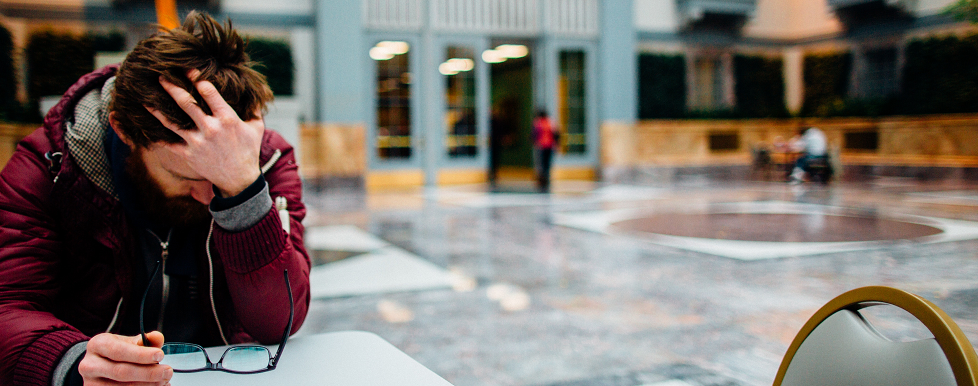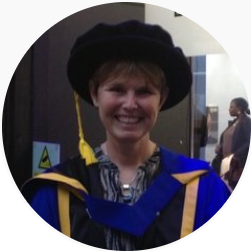Study suggests rural LGBTQ teachers likelier to have depression/anxiety than those in cities



This article was written for theconversation.com by Catherine Lee, Deputy Dean for Education, Anglia Ruskin University.
It has been republished in full under a creative commons licence.
Thumbnail image courtesy: Pexels.
Jo is a teacher in a large primary school in a village in Southeast England. She tells me she is having counselling for depression and has taken time off school because she finds her personal life as a lesbian totally incompatible with her professional identity as a teacher. She said:
I find myself stopping mid-sentence in the classroom or the staffroom. I’m constantly worried, I’ll say something that accidentally outs me to pupils and other teachers. It’s exhausting and, although I love teaching, some days I feel as though I can’t cope.
Jo is not unusual. I recently surveyed more than 100 lesbian, gay, bisexual (LGB) teachers in the UK and found that more than half (61%) of those in village schools have accessed help for depression and anxiety linked to their sexual identity and role as a teacher. This compared to 11% in cities and 14% in towns. Indeed, 46% of LGB teachers in village schools have been absent from work, compared with only 5% of teachers in towns and cities.
Some respondents told us that they now avoid applying for posts in rural areas completely. Those that do get jobs in rural schools rarely stay very long. Sarah taught English in a village secondary school for a year, but returned to London after being warned by her headteacher not to come out as gay. She told me:
My head told me that if I was serious about leadership, I must never come out at school, as the parents wouldn’t tolerate it. He added that ‘lesbians don’t become headteachers’.
My research found that more than 40% of teachers in village schools thought that their sexual or gender identity had been a barrier to their promotion compared with an average of 15% of teachers in towns or cities. A third of teachers in village schools had left a role because of homophobia compared with 17% of teachers in schools in towns or cities.
In addition, 31% of teachers in rural schools reported hearing homophobic language every day, compared with only 2% of urban teachers.
Almost a third of LGB teachers in village schools said that they were not able to be themselves in the school staffroom and kept their personal lives a secret from their colleagues. In towns and cities, 98% of LGB teachers were out to at least some school staff but not to pupils and their parents.
Teachers in rural schools face an all or nothing situation when deciding whether or not to come out. The interwoven nature of rural relationships and communities makes it much harder for people to only come out to a few people without everyone else hearing about it. Many LGB teachers told us they avoid posts in rural schools because being the local schoolteacher brings with it a level of surveillance which is intolerable.
The percentage of LGB teachers in rural schools accessing help for anxiety and depression suggests that there may be a link between the extent to which LGB teachers feel able to be open about their sexual identity in the workplace, and their mental health. Research into the mental health of LGB people suggests that they may more be prone to mental health issues such as anxiety and depression because of repeated messages of exclusion.
A sense of inclusion and harmony with one’s environment is the basis for good mental health. Where teachers feel that the culture of the school and local community is unwelcoming it can lead to significant stress and anxiety.
When lesbian, gay, bisexual or transgender (LGBT) teachers are forced to retreat to the perceived safety of schools in towns or cities, it perpetuates the idea that rural areas are not suitable for them. When this occurs, children and young people have fewer opportunities to see on a day-to-day basis how LGBT adults live their lives, and in doing so, dispel any homophobic myths passed down from previous generations.
The LGBT teacher who remains unseen by the rural school community also denies emerging LGBT young people access to positive role models. The inevitable result of this is that many rural LGBT young people eventually migrate to towns or cities, further perpetuating the idea that rural life is incompatible with LGBT identities.
From September 2020, schools will introduce relationships and sex education that includes LGBT relationships. The angry response to this by parents and local communities in Birmingham and across the UK has created moral panic and left at least one of the teachers involved needing counselling.
Headteachers have called for urgent support from the government amid fears that the disruption could escalate further. If protests do persist and become more widespread, the rural school workplace is likely to become even more challenging for LGBT teachers.
The study participants’ names have been changed to protect their identities.![]()
Catherine Lee, Deputy Dean for Education, Anglia Ruskin University
This article is republished from The Conversation under a Creative Commons license. Read the original article.
